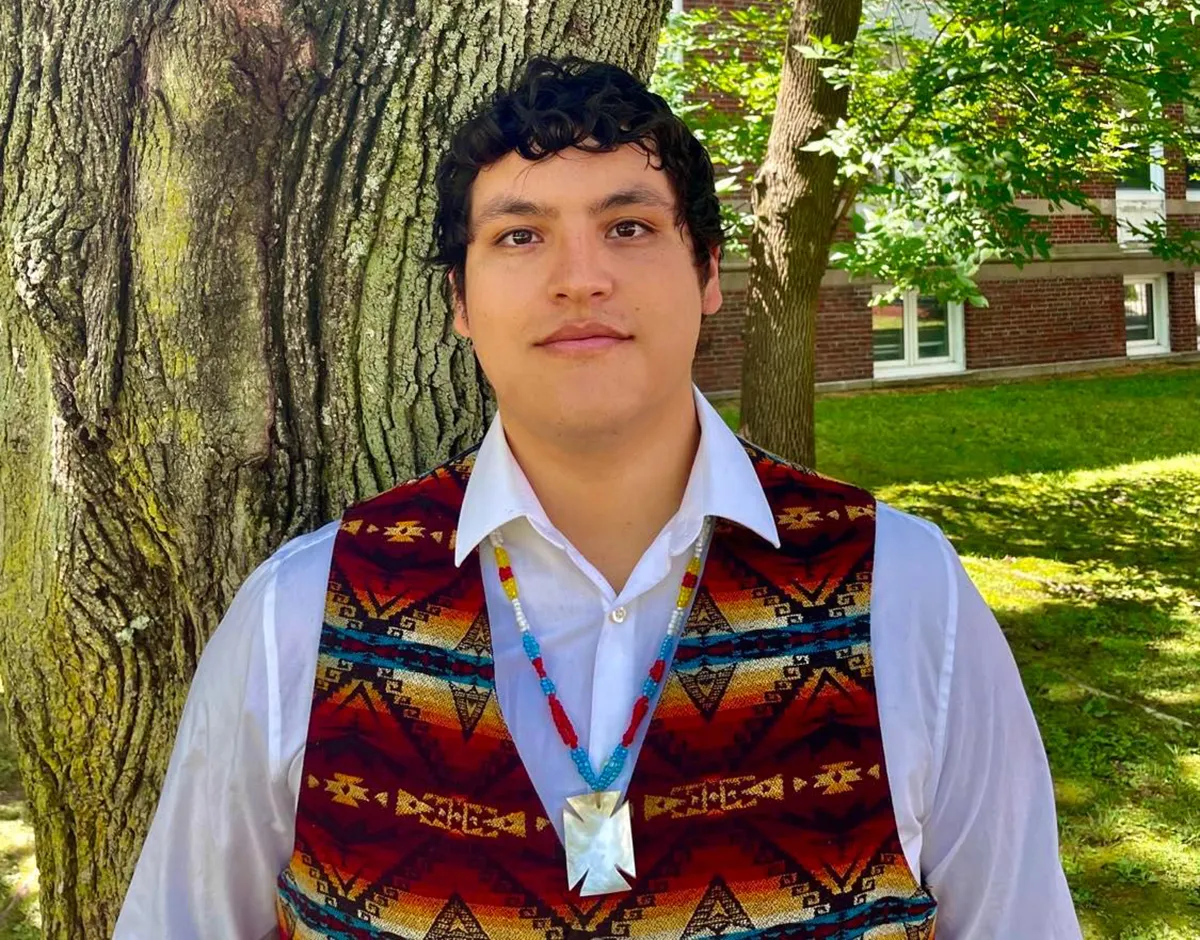The Yaqui Nation’s native language, Yoeme, still holds on as a living symbol of the resilience that served the Yaqui well during the pandemic. Frustrated that their prayers for help and COVID-19 information were at first answered mostly in English or Spanish, the Yaqui people in Sonora, Mexico, mobilized to disseminate COVID-19 information in Yaqui to local radio stations.
Witnessing this, Victor A. Lopez-Carmen ’17, a health sciences/premedical major at IC, recognized a sustainable model and did what his family of healers had been doing for centuries. He honored his culture and his people, and he got to work, helping to coordinate translations of COVID-19 materials and setting up pathways for more representation in the medical community.
Now a Harvard Medical School student set to graduate in 2023, Lopez-Carmen has dedicated much of his time after Ithaca College to helping not just his own tribes—the Crow Creek Sioux Tribe in South Dakota and the Yaqui Nation in Arizona and Mexico—but also Indigenous peoples everywhere, whom he credits with a kind of intergenerational mindset that is at the core of his philosophy.
